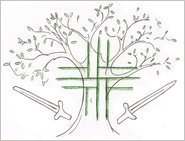This Forum is now inactive and has been replaced by a new Christogenea Forum. You may browse here but there are no updated threads or new posts since January 1st 2017. Forum members please see THIS NOTICE for information concerning your account at the new forum.
Effective Study
17 posts
• Page 2 of 2 • 1, 2
Re: Effective Study
Do you have Ferrar Fenton and Christogenea NT on E-Sword? That'd be great 
- Nayto
- Posts: 1151
- Joined: Tue Jul 17, 2012 6:06 am
Re: Effective Study
Another good study tool is the "God's Word" app on Android and the audio Bible readings on YouTube.
I find listening to the Old Testament very rewarding as I have trouble pronouncing the complex names and places. So what happens is that you focus more on the story and what is happening instead of how to figure out a word pronouncement.
Listening to a Bible CD at night turned down till you barely can hear it is very rewarding, too. Many times the scripture reads along in my mind after listening to it over and over. I knew about this technique 48 years but had forgotten about it till Don Spears brought it up of while back. Your mind and heart has the ability to store millions of years worth of memory. Of course Paul said this about hearing:
And the Lord Jesus Christ said:
Steve
I find listening to the Old Testament very rewarding as I have trouble pronouncing the complex names and places. So what happens is that you focus more on the story and what is happening instead of how to figure out a word pronouncement.
Listening to a Bible CD at night turned down till you barely can hear it is very rewarding, too. Many times the scripture reads along in my mind after listening to it over and over. I knew about this technique 48 years but had forgotten about it till Don Spears brought it up of while back. Your mind and heart has the ability to store millions of years worth of memory. Of course Paul said this about hearing:
"So then faith cometh by hearing, and hearing by the word of God."
And the Lord Jesus Christ said:
"Hear ye therefore the parable of the sower. 19 When any one heareth the word of the kingdom, and understandeth it not, then cometh the wicked one, and catcheth away that which was sown in his heart. This is he which received seed by the way side. 20 But he that received the seed into stony places, the same is he that heareth the word, and anon with joy receiveth it; 21 Yet hath he not root in himself, but dureth for a while: for when tribulation or persecution ariseth because of the word, by and by he is offended.1 22 He also that received seed among the thorns is he that heareth the word; and the care of this world, and the deceitfulness of riches, choke the word, and he becometh unfruitful. 23 But he that received seed into the good ground is he that heareth the word, and understandeth it; which also beareth fruit, and bringeth forth, some an hundredfold, some sixty, some thirty."
Steve
-

GermanSaxon - Posts: 107
- Joined: Thu Nov 24, 2011 1:28 pm
Re: Effective Study
Nayto said
Of-course the Christogenea NT is my main Bible, I compare everything to it.
I just want to give an example;
Christogenea NT
Joh 12:24 Truly, truly I say to you, unless a grain of wheat falling to the ground dies, it remains alone. But if it should die, it bears much fruit.
Weymouth NT
Joh 12:24 In most solemn truth I tell you that unless the grain of wheat falls into the ground and dies, it remains what it was--a single grain; but that if it dies, it yields a rich harvest.
I didn't fully grasp this verse until I read this and I don't think it contradicts the CNT (someone may correct me on this).
I immediately thought of:
Rom 6:8 Now if we have died with Christ, we believe that we also will live with Him,
I don't use a cross-reference anymore, I am building a cross-reference system in my brain.
Do you have Ferrar Fenton and Christogenea NT on E-Sword? That'd be great
Of-course the Christogenea NT is my main Bible, I compare everything to it.
I just want to give an example;
Christogenea NT
Joh 12:24 Truly, truly I say to you, unless a grain of wheat falling to the ground dies, it remains alone. But if it should die, it bears much fruit.
Weymouth NT
Joh 12:24 In most solemn truth I tell you that unless the grain of wheat falls into the ground and dies, it remains what it was--a single grain; but that if it dies, it yields a rich harvest.
I didn't fully grasp this verse until I read this and I don't think it contradicts the CNT (someone may correct me on this).
I immediately thought of:
Rom 6:8 Now if we have died with Christ, we believe that we also will live with Him,
I don't use a cross-reference anymore, I am building a cross-reference system in my brain.
...and a flaming sword which turned every way, to keep the way of the tree of life.
-

Joe - Posts: 1664
- Joined: Thu Aug 29, 2013 1:23 pm
Re: Effective Study
The Greek of John 12:24 is quite consistent among all ancient manuscripts.
Weymouth evidently added some words in order to interpret the verse. Weymouth added the words "what it was", which are not found in the Greek, and then interpreted the word μόνος as a separate clause with the phrase "a single grain", although the word for grain is not repeated in the Greek. Here is the breakdown of Greek to CNT English:
[1 ὁ κόκκος] [2 τοῦ σίτου] [3 πεσὼν] [4 εἰς τὴν γῆν] [5 ἀποθάνῃ,] [6 αὐτὸς] [7 μόνος μένει·]
[1 a grain] [2 of wheat] [3 falling] [4 to the ground] [5 dies,] [6 it] [7 remains alone]
Here μόνος, alone, is correctly interpreted as an adjective modifying the pronoun αὐτὸς, or it. The phrase may have been written "it alone remains" and then the word order would match the Greek. μένει is a form of a verb which means to remain.
But Weymouth seems to interpret μόνος separately, getting a noun out of the adjective!
Weymouth is trying to put the meaning which they perceive the verse to have into the translation for you, by adding words or phrases which are not really explicit in the Greek. Sometimes interpretation cannot be avoided when translating certain passages. But I tried to avoid doing that as much as possible.
I am not beating up on Weymouth, but only trying to show some of the considerations in making a translation.
Weymouth evidently added some words in order to interpret the verse. Weymouth added the words "what it was", which are not found in the Greek, and then interpreted the word μόνος as a separate clause with the phrase "a single grain", although the word for grain is not repeated in the Greek. Here is the breakdown of Greek to CNT English:
[1 ὁ κόκκος] [2 τοῦ σίτου] [3 πεσὼν] [4 εἰς τὴν γῆν] [5 ἀποθάνῃ,] [6 αὐτὸς] [7 μόνος μένει·]
[1 a grain] [2 of wheat] [3 falling] [4 to the ground] [5 dies,] [6 it] [7 remains alone]
Here μόνος, alone, is correctly interpreted as an adjective modifying the pronoun αὐτὸς, or it. The phrase may have been written "it alone remains" and then the word order would match the Greek. μένει is a form of a verb which means to remain.
But Weymouth seems to interpret μόνος separately, getting a noun out of the adjective!
Weymouth is trying to put the meaning which they perceive the verse to have into the translation for you, by adding words or phrases which are not really explicit in the Greek. Sometimes interpretation cannot be avoided when translating certain passages. But I tried to avoid doing that as much as possible.
I am not beating up on Weymouth, but only trying to show some of the considerations in making a translation.
-

wmfinck - Site Admin
- Posts: 2775
- Joined: Fri Jul 03, 2009 2:09 am
Re: Effective Study
I knew Weymouth was interpreting a bit. I guess I thought that -that- is what it meant. Especially since Henry seemed to agree. But it seems you are saying that it is simply one possible interpretation. I have heard you say that we need to consider all possible meanings.
Is this what everyone is like?, or is it just me not getting it? I really want to know what Christ means. Maybe He meant for us to consider it in many ways.
Also, I guess Bible interpretation is more consistent when you take into account all of Scripture whereas I am tending to over-think certain verses maybe. The Bible is the most challenging thing I have read, as it should be.
Is this what everyone is like?, or is it just me not getting it? I really want to know what Christ means. Maybe He meant for us to consider it in many ways.
Also, I guess Bible interpretation is more consistent when you take into account all of Scripture whereas I am tending to over-think certain verses maybe. The Bible is the most challenging thing I have read, as it should be.
...and a flaming sword which turned every way, to keep the way of the tree of life.
-

Joe - Posts: 1664
- Joined: Thu Aug 29, 2013 1:23 pm
Re: Effective Study
My point is that you have to be careful with translations because they are doing a certain amount of interpretation for you. All translations must by necessity do some interpreting. So I thought I would use your verse comparison to illustrate what Weymouth interprets for you, and why when I did that verse I did not go there.
In the verse you pointed out, Weymouth augmented the meaning of the original without going so far as to pervert it. Other elaborations may not be as innocent. Many translations do far too much interpreting, using artistic license to pervert the meaning of the original words rather than elucidate their meaning.
In the verse you pointed out, Weymouth augmented the meaning of the original without going so far as to pervert it. Other elaborations may not be as innocent. Many translations do far too much interpreting, using artistic license to pervert the meaning of the original words rather than elucidate their meaning.
-

wmfinck - Site Admin
- Posts: 2775
- Joined: Fri Jul 03, 2009 2:09 am
Re: Effective Study
Thanks Bill. I understand now.
I appreciate that I can rely on your translation, I think I can use other translations critically to form an idea about how others understand the meaning, comparing their elaborations through the lens of the CNT.
I appreciate that I can rely on your translation, I think I can use other translations critically to form an idea about how others understand the meaning, comparing their elaborations through the lens of the CNT.
...and a flaming sword which turned every way, to keep the way of the tree of life.
-

Joe - Posts: 1664
- Joined: Thu Aug 29, 2013 1:23 pm
17 posts
• Page 2 of 2 • 1, 2
Return to Miscellaneous Banter
Who is online
Users browsing this forum: No registered users and 0 guests

